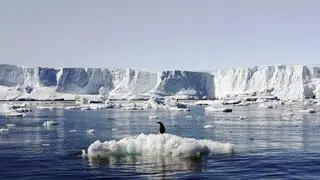Single-use plastic waste is a menacing global issue. The ocean is clogged with an estimated 9 million tonnes of plastic every year, and rivers play a significant role in this problem as they act as conveyor belts for plastic debris flowing into the ocean, according to the National Geographic.
In order to better understand how plastic waste travels from source to sea, and to fill knowledge gaps around plastic flow, load and composition, the National Geographic is launching a ‘Sea to Source: Ganges’ river expedition, in partnership with the Wildlife Institute of India (WII), the University of Dhaka and WildTeam, says a press release.
Interestingly, an international, all-women expedition team will study plastic pollution in the Ganga. This initial expedition is planned to begin in the Bay of Bengal through the Padma River and end at the source of the Ganga in the Himalayas.
The expedition is the first of several river expeditions planned as part of National Geographic’s ‘Planet or Plastic?’ initiative, which seeks to reduce the amount of single-use plastic that reaches the ocean.
The expedition team of 15 scientists and engineers, co-led by National Geographic Fellows Jenna Jambeck and Heather Koldewey, will work with international partners “to provide science-based, actionable information to build capacity for local solutions.”
3 key areas
The ‘Sea to Source: Ganges’ expedition will focus on plastic pollution in three key areas: land, water and people. The team working on the land portion will collect data on the input and use of plastic in communities, and how waste is collected and managed, and will quantify the movement and type of plastic in the environment, says the release.
The water team will study plastic pollution in air, water, sediment and species in and around the river. The socio-economic team will survey local communities along the expedition route to better understand awareness of plastic pollution, household plastic waste management and local solutions to address this issue.
“The team will work with local stakeholders to translate its scientific findings using storytelling to raise awareness about plastic pollution and drive behaviour change,” explains the release.
This is the first time that there has been a four-dimensional investigation of plastic pollution on this scale across sediment, water, air and land. It is also the first time this interdisciplinary team has integrated innovative technology to better understand plastic waste and inform solutions, adds the release.








Comments
Comments have to be in English, and in full sentences. They cannot be abusive or personal. Please abide by our community guidelines for posting your comments.
We have migrated to a new commenting platform. If you are already a registered user of TheHindu Businessline and logged in, you may continue to engage with our articles. If you do not have an account please register and login to post comments. Users can access their older comments by logging into their accounts on Vuukle.